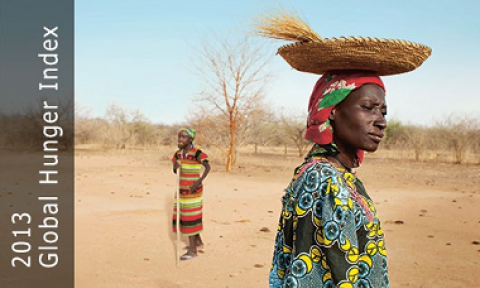
2013 Global Hunger Index: The Challenge of Hunger
The 2013 Global Hunger Index (GHI) report—the eighth in an annual series—presents a multidimensional measure of national, regional, and global hunger. It shows that the world has made some progress in reducing hunger since 1990, but still has far to go. World hunger remains “serious,” and 19 countries suffer from levels of hunger that are either “alarming” or “extremely alarming.”
The theme of the 2013 GHI report is resilience in theory and in practice. The relief and development communities have long struggled to understand why some people fare better than others when confronting stresses or shocks. Resilience-building efforts are much needed to help poor and vulnerable people cope with hunger seasons, droughts, and other natural and manmade disasters. To help build resilience in ways that will boost food and nutrition security, the report calls for breaking down the silos between the relief and development communities and for focusing on approaches that contribute to the ability of people and systems to resist, absorb, and transform in response to shocks.

